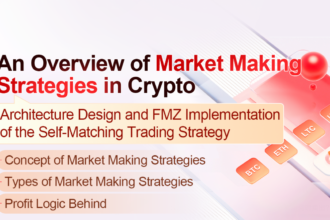What is the truth of the trading? Too many sayings around us, it is difficult to distinguish between true and false, but what is certain is that it can stand the test of time and has certain credibility. This time, we will open a trade masterpiece written in 1880, <<Speculation As a Fine Art and Thoughts on Life>>, by Dickson G. Watts. The famous sentences in his book have been repeatedly quoted by other famous works of later generations, including the author of << Reminiscences of a Stock Operator>> Stanley Kroll. The success of those famous works should be attributed to this book, which is inspired by it. For the authors and countless great traders, this book should not be forgotten.
There are only ten dogmas in the book about the trading. Others are about the author’s views on life and society. Those who are interested can refer to it. Many of these trading dogmas are familiar, and everyone may feel very ordinary, but this was written more than a hundred years ago. At that time, the United States was still the age of western cowboys and bounty hunters, while China was late Qing dynasty. The times have changed, but these dogmas still seem to be quite applicable today. These dogmas may give you some inspiration, even to deal with the large fluctuations that may occur in the future.
Law of Absolute
1. Never Overtrade: If you have a part that is too large and exceeds the capital, it will obviously cause disaster. When a position of this size encounters a fluctuation in the market, it will make the trader frustrated and his judgment will become worthless.
2. Never “Double Up”: Never completely flip the direction of your position at the same time. For example, once open a long positions, when close this position, don’t short the same amount of position at the same time and same pirce. This kind of action will success by chance, but it is very dangerous. If the market reverses again, speculators will have to change their minds again, open their reverse positions, and then flip the mind at the same time again. If this is wrong, it will become extremely frustrating. Changing the original part should be done properly and carefully, in order to maintain a clear balance between judgment and mind.
3. Run fast : When the danger first appears, you must move quickly to escape. But if you don’t have time to flee, and other people are aware of the danger, stop it, or just close some part of positions.
4. When doubtful, reduce the amount of the interest: Whether it is unsatisfactory to the position, or if the part held is too large to cause insecurity, the part should be reduced. Someone told a friend that his part made him sleepless, and his friend responded wisely and succinctly: “Lighten up until you can sleep.”
Rules Conditional
These principles can be appropriately modified according to the trader’s situation and personality.
1. Average up when making money is better than Average down when losing money. This view is contrary to the recognition and practice of the normal people. The general practice is that if you buying, then the price falling you will buy more, because it can lower the cost price. In four of the five times, the market did rebound and reduced losses, but on the fifth time, when the market did not rebound and continued to fall, the trader would be too big to lose, and had to leave with a huge loss. This level of loss will cause speculators to lose their fighting spirit, and most of them will end in bankruptcy.
On the contrary, when you are making money, add the position lightly at the beginning, and slowly and cautiously increase the position along with the direction when the market continues to rise — but the speculation method needs to be very careful, because the market will often call back to the cost price (about 4 out of 5), which is a danger signal. Failure to close the position at the cost price will destroy the security of the entire transaction. However, when it comes to a market that continues to rise, it is time to make big money.
In this way of trading, the initial risk is quite small, but when it is successful, the profit is very large. This approach can only be applied if there is a significant uptrend or downtrend in the expected market and invested in appropriate and relatively safe capital.
2. Buying when the price are falling, you need to have a generous pocket and a strong will. However, some people, even if they have money and strong willpower, trading like this way, are often still be destroyed. The stronger the will, the more likely you are to stay in the market for a little longer. However, there is indeed a successful trader who buys and holds when price falls. They buy with a small amount of capital and are determined to hold it for a long time when they enter the market. They are not affected by the volatility. They have good judgments and hold them during the recession until the economy recovers. They are investing, not speculating.
3. Under normal circumstances, my suggestion is to buy under the appropriate capital restrictions, and then, based on the judgment, close the position by stop loss or take profit. The principle is “Stop losses and let profits run”. If the goal is to get a small profit, then you need to set a small loss limit. Not having the courage to accept the loss, and the urgent withdrawal of profits, this is the fatal part of the trading. This way I don’t know how many trader were destroyed.
4. Don’t ignore the public’s opinion. Some serious speculative events should be closely watched. The principle is to respond cautiously to the public’s views and boldly go against it. Even if the fundamentals are good, it is dangerous to blindly follow the market (such as in a bull market). The market reverses and bites you at any time. Every speculator should know that having too many companions is dangerous. However, you should be cautious when you go against the trend, and this caution should be maintained until the market is not stable, that is, when the public loses confidence and the market, emotions and funds reach their limits. The trader should always pay attention to the pulse of the market and respond as a doctor.
5. In a calm and weak market, you should sell the goods, because this market will have developed into a down market. But when the market has turned from a weak state to an active decline, and then into a semi-panic or panic selling, you should be bold to buy. Conversely, when you are developing into a more active state in a slowly rising market, you should be confident when you enter a frenetic state.
6. When forming a perception of the market, don’t ignore the possibility. In the battle of Napoleon, there is a possibility related to the lesson: accidents will always destroy and modify the best budget. When you are budgeting, you must consider things that cannot be budgeted. The talent who can repeat the possibility of rehearsal is a real strongman.
It is best to act on the basis of universal information rather than special information (which is not misleading), such as the state of the country, the state of crops, and the state of manufacturing. Statistics are valuable because they provide a comprehensive view of the overall state of the environment. But those who are staring at statistics to trade are the worst examples. British diplomat George Canning said: “In addition to statistics, nothing in the world is as deceptive as the truth.”
“When there is suspicion, do nothing. Don’t enter the market when you have insufficient beliefs, wait until your beliefs mature.”
Written here, our purpose has been reached, the most basic principle of speculation: action must keep the mind clear, so that judgment can be trusted. Therefore, reserve forces should also be preserved for better action, especially when applied to a full blow.
It may be difficult to carry out these principles, and it is true that only those who are talented can use them. However, just like artists, only the loyalty to their own artistic principles will be valuable.





